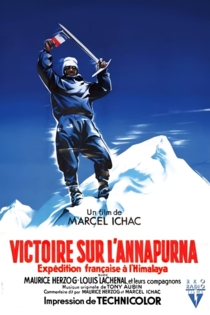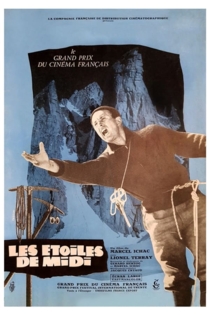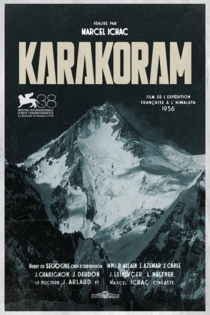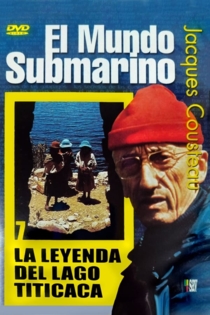
Marcel Ichac
2021“Grand master of documentaries” according to historian Jean Tulard, Marcel Ichac is considered in particular as “the greatest filmmaker specializing in mountain films in France and undoubtedly in the world” of his generation by Georges Sadoul. First a skier and mountaineer, a great witness of French mountaineering, Marcel Ichac then became, through the diversity of the spaces explored, the filmmaker of French exploration in the 1930s and 1950s (the first two French expeditions to the Himalayas in 1936 and 1950, scuba diving with Jacques-Yves Cousteau, Greenland with Paul-Émile Victor, the very first speleology documentaries in the world with in particular Norbert Casteret, etc.).
Marcel Ichac revolutionized documentary cinema with his desire to insert the viewer into the action with an obsession with authenticity. This required, beyond the accompaniment of the sportsman in his effort, technical innovations (the generalized use of light cameras whereas the cameras of the time were generally heavy and fixed), artistic (the subjective camera, mounted on skis, worn on the shoulder, etc., shooting with the mountaineer's gaze) and narratives. Marcel Ichac is considered a precursor of "cinéma verité" and docu-fiction. Beyond that, Marcel Ichac played a pioneering role, both in the technical field (with in particular the production of the first French film in cinemascope, etc.), institutions (foundation of the Group of thirty to defend the short film), that men (launch of Jacques Ertaud, Jean-Jacques Languepin, Gérard Oury, Jean-Louis Trintignant, Robert Enrico in the cinema). Marcel Ichac has received the highest awards in world cinema (Oscar in Hollywood, awarded at the Cannes Film Festival and at the Venice Film Festival, not to mention the festivals specializing in mountain and exploration cinema).
Marcel Ichac had more than a hundred ascents to his credit as a mountaineer. He was a member of the Explorers Club of New York, the Society of French Explorers and the High Mountain Group (GHM), as was his wife, Gabrielle Ichac-Lartigue, herself a confirmed mountaineer. When the high mountains were closed to him, at the age of 70, Marcel Ichac threw himself into running and long-distance walking. He regularly participated in the 100 Km of Millau (France), and in the New York Marathon, from which he obtained in 1986, first place in the diamond age category, for the over 80s.
Victoire sur l'Annapurna
Marcel Ichac
Jean Couzy, Marcel Ichac
In 1950, a French expedition led by Maurice Herzog went to central Nepal to conquer the highest peak (8,091 meters): Annapurna. The film is not only made of what we see, but even more of what we don't see. Its imperfections are the negative imprint of the adventure. Memory is the most faithful of films.
Victory over Annapurna

Les étoiles de midi
Jacques Ertaud, Marcel Ichac
Roger Blin
Les Etoiles de Midi is an engaging docudrama about some of the more spectacular exploits of French mountain climbers over the last several decades. In one re-enacted story, there is a wartime escape through the mountains, and in another, a daring rescue of a pair of climbers who had been missing. The actors themselves are adept at the sport of climbing, and they give the scenes an immediacy and real daring that brings the stories alive. A combination of their acrobatics and skill and the outstanding episodes in the history of French climbing creates a winning 78 minutes.
Les Étoiles de Midi

Karakoram
Marcel Ichac
Pierre Allain, Henry de Ségogne
Account of the first French expedition to the Himalayas, which attempted to climb the hidden peak (Gasherbrum I) in 1936, from the preparations for the trip to the end of the ascent. After a long approach walk through quasi-desert regions, then on a huge glacier, the caravan of 700 porters arrives at the foot of Hidden Peak. The expedition was led by Henry de Ségogne, with Jean Charignon, Pierre Allain, Raymond Leininger, Jean Carle, Jean Deudon, Louis Neltner, Jacques Azémar, doctor Jeand Arlaud and director Marcel Ichac. Weather conditions, logistical problems and a strike among Sherpas forced the team to retire at 6900m on the south face. The film received the Silver Lion at the Venice Film Festival in 1938.
Karakoram

